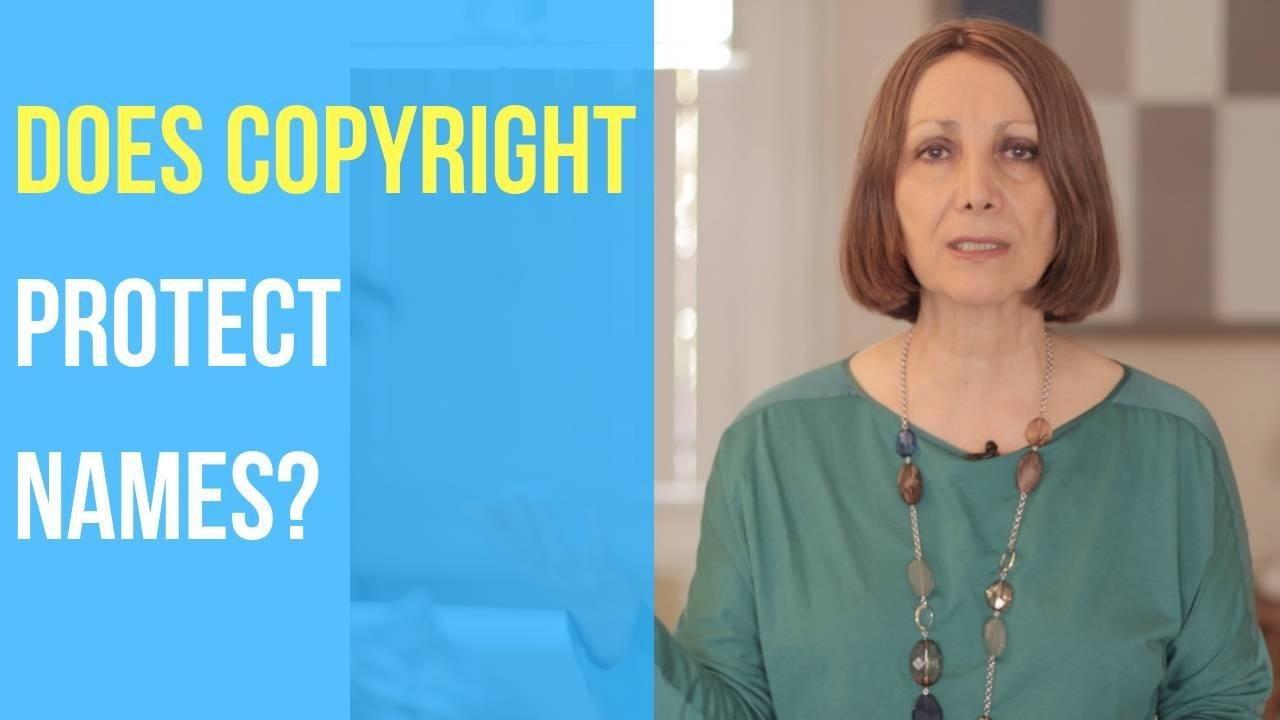Does Copyright Protect Names?

Copyright is a wide-ranging subject, and relevant to many creative and non-creative industries.
It is arguably the most universally relevant IP right, covering written materials, music, art, logos, and computer programs, to name a few. It protects most visual brand elements, such as logos, packaging, and websites, albeit it may also be possible to protect these by also registering some of them as designs or trademarks to secure added protection.
Copyright protects original expression, but not ideas themselves. So, if someone were to suggest an idea to you to execute, such as an unusual looking picture of a bird, or gave you an idea for a plot, you as the creator would own copyright in the picture or plot you produce,and the person who gave you the idea will have no rights to any share of it. So the person with ideas gets no copyright in the work created as a result of their ideas unless there is a legal agreement between the two parties that provides otherwise.
Can I copyright my name?
Some people ask to “copyright” their name.
People wonder whether copyright prevents them from using particular words for their product or business. Even newspapers and popular online publications make the basic mistake sometimes of reporting names as being copyrightable. In fact, names are not protected by the law of copyright. It is trademarks that protect names.
It was in a case in 1982 Exxon Corp, where it was decided that copyright does not protect names. The company unsuccessfully applied to stop Exxon Insurance Consultants calling themselves Exxon, arguing that it had copyright in the name as it had spent substantial amounts of money developing the name.
In a landmark decision, the UK Court of Appeal disagreed and took the view that it was not possible to have copyright in a name because a name is too brief. Regardless of how much investment or time is put into the creation of a name, no matter how clever it is, from a policy point of view the court decided to keep names outside the scope of copyright protection. Instead, names are protected by the law of trademarks.
Some famous examples of slogans which are also protected by trademarks are Nike’s Just Do It, and L’Oreal’s Because you’re worth it.
What does this mean for you? Well, for names and slogans you need to turn to trademark law for guidance. While for other works, such as those outlined at the start of this piece as examples of copyright works, generally, all you need to do to own your work is to record it in some way (for example by writing it down, taking a photograph, or getting it on tape).
If you ask someone else to do work for you, for example, to develop a website, then you need a contract before you engage them, to give you the copyright, otherwise, they will own the rights in the site.
If an agency helps you to choose a brand name then unless you agree otherwise in the legal agreement between you, you will have exclusive rights to the name. They will have no claim to it.
It’s important to get an expert in trademark law to help you assess whether a name is legally effective and available. If it is, then registering it as a trademark is a sensible step to take so you own the rights to the name. This is important as you will be generating goodwill in the name.


